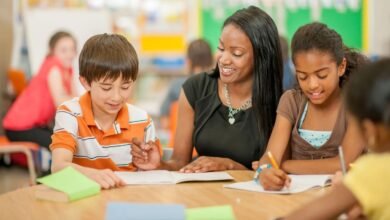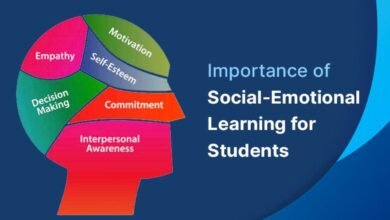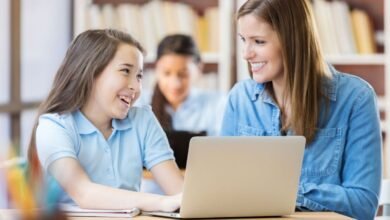The Importance of Personalized Learning in Education

In recent years, the educational landscape has been undergoing a significant transformation. Traditional methods of teaching, which often employ a one-size-fits-all approach, are being reevaluated in favor of more individualized strategies that cater to the unique needs of each student. This shift is largely fueled by the growing recognition of personalized learning in education, a method that tailors the educational experience to meet the diverse learning styles, interests, and paces of individual students. As educators and institutions increasingly embrace this paradigm, understanding its importance becomes paramount for fostering an effective and engaging learning environment.
Understanding Personalized Learning
Personalized learning is an educational approach that seeks to customize learning experiences to fit the individual needs of students. Unlike traditional classrooms where the same curriculum is applied uniformly, personalized learning emphasizes tailoring the content, process, and assessment methods to accommodate the varying abilities, preferences, and goals of each learner. This might involve differentiating instruction, offering choices in assignments, and utilizing technology to create adaptive learning pathways. By acknowledging that each student learns differently, personalized learning aims to enhance engagement, motivation, and ultimately, academic success.
At its core, personalized learning incorporates several key components, including competency-based progression, flexible learning environments, and student-centered learning goals. Competency-based progression allows students to advance upon mastering a subject rather than adhering to a fixed timeline, thereby providing them with the opportunity to take ownership of their learning. Flexible learning environments can include varied settings—ranging from traditional classrooms to online platforms—enabling students to learn in a manner that best suits their preferences. Moreover, student-centered learning goals empower learners to set objectives that resonate with their interests, making the educational journey more relevant and meaningful.
The Benefits of Personalized Learning
The shift towards personalized learning brings with it a multitude of benefits, both for students and educators. One of the most notable advantages is the increased level of student engagement. When students have a say in their learning experiences and can pursue subjects that interest them, they are more likely to be invested in their education. This intrinsic motivation fosters a desire to learn, making educational experiences more enjoyable and fruitful.
Furthermore, personalized learning has been shown to enhance academic achievement. Research indicates that students who engage in personalized learning outperform their peers in standardized assessments and demonstrate a deeper understanding of the material. By focusing on individual strengths and addressing specific weaknesses, educators can guide students toward achieving their academic goals more effectively. This individualized approach ensures that no student is left behind, as it accommodates learners who may struggle with traditional methods while also challenging those who excel.
In addition to academic benefits, personalized learning promotes the development of essential life skills such as critical thinking, problem-solving, and self-regulation. As students navigate their personalized learning paths, they are often required to make decisions about their education, setting goals, and monitoring their progress. This process fosters a sense of responsibility and independence, equipping students with the skills they need to thrive not only in school but also in their future careers and personal lives.
Challenges in Implementing Personalized Learning
Despite its many advantages, the implementation of personalized learning in education is not without challenges. One of the primary obstacles is the need for substantial changes in teaching practices and educational structures. Many educators are accustomed to traditional instructional methods, and shifting to a more individualized approach requires professional development, training, and ongoing support. Teachers must be equipped with the tools and resources necessary to differentiate instruction effectively and create flexible learning environments.
Another significant challenge is the reliance on technology in personalized learning. While digital tools can enhance the learning experience, issues such as unequal access to technology and digital literacy gaps can create disparities among students. Schools must prioritize equitable access to resources and ensure that all students are adequately prepared to utilize technology in their learning journeys.
Additionally, personalized learning requires a robust system of assessment and feedback. Traditional assessments may not adequately capture a student’s progress in a personalized learning environment. Instead, ongoing formative assessments that provide insights into individual learning trajectories are essential for guiding instruction and ensuring that each student receives the support they need. This shift necessitates a cultural change in how educators view assessment and the role it plays in the learning process.
Strategies for Successful Implementation
To successfully implement personalized learning in education, several strategies can be employed. First and foremost, professional development for educators is crucial. Training programs should focus on equipping teachers with the skills and knowledge necessary to design and facilitate personalized learning experiences. Collaborative learning communities can also provide teachers with the opportunity to share best practices and resources, fostering a culture of continuous improvement.
Integrating technology into the personalized learning framework is another essential strategy. Schools should invest in digital tools that facilitate individualized learning paths, such as adaptive learning platforms, learning management systems, and interactive educational resources. By providing teachers and students with access to these technologies, schools can enhance engagement and allow for more effective tracking of student progress.
Moreover, fostering strong partnerships between educators, students, and families can significantly enhance the personalized learning experience. Open lines of communication encourage collaboration and ensure that all stakeholders are invested in the student’s educational journey. Involving parents in the learning process allows for a more comprehensive understanding of each child’s needs, interests, and goals, which can further inform personalized learning strategies.
Finally, it is vital to establish a culture of growth and resilience within the educational environment. Personalized learning is an iterative process that requires patience, flexibility, and a willingness to adapt. Encouraging students to embrace challenges and view setbacks as opportunities for growth can cultivate a positive learning atmosphere where they feel empowered to take risks and pursue their interests.
The Future of Personalized Learning in Education
As technology continues to advance and educational paradigms evolve, the future of personalized learning in education looks promising. Emerging technologies such as artificial intelligence (AI) and machine learning are set to revolutionize the way personalized learning is delivered. AI-driven platforms can analyze student data to offer tailored recommendations, identify areas of improvement, and even predict future learning trajectories. This data-driven approach can help educators refine their instructional strategies and provide targeted support to students.
Moreover, the increasing emphasis on social-emotional learning (SEL) aligns seamlessly with personalized learning. Recognizing the importance of emotional well-being in the educational experience, schools are beginning to integrate SEL into personalized learning frameworks. By addressing not only academic needs but also emotional and social aspects, educators can create a holistic approach that supports the overall development of students.
In conclusion, personalized learning in education is a transformative approach that recognizes and values the individuality of each learner. By tailoring educational experiences to meet the diverse needs of students, personalized learning enhances engagement, fosters academic achievement, and equips learners with essential skills for the future. While challenges exist in its implementation, strategic approaches and a commitment to ongoing improvement can pave the way for a more inclusive and effective educational system. As we move forward, embracing personalized learning will be essential for creating an environment where all students can thrive and reach their full potential.



